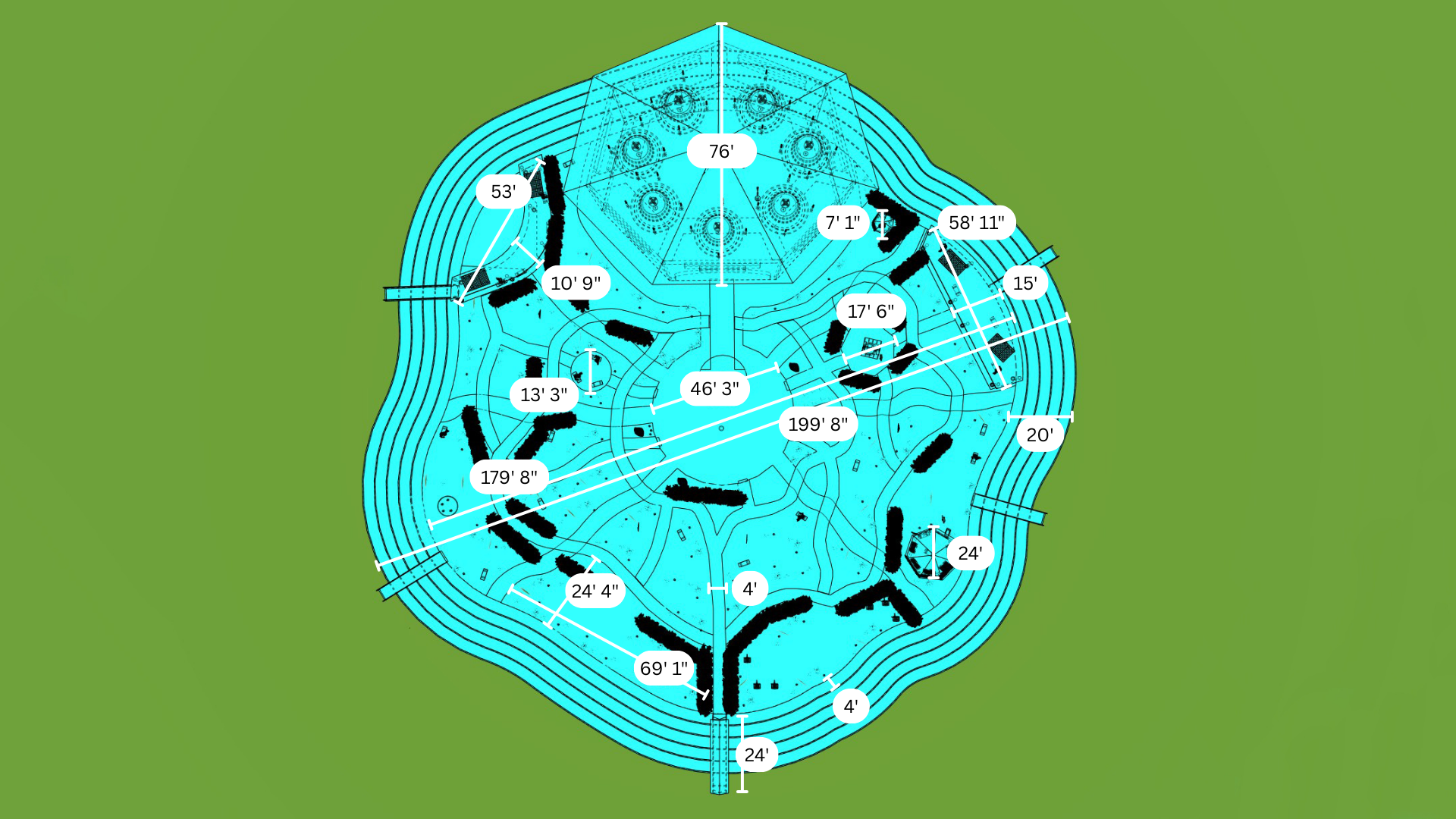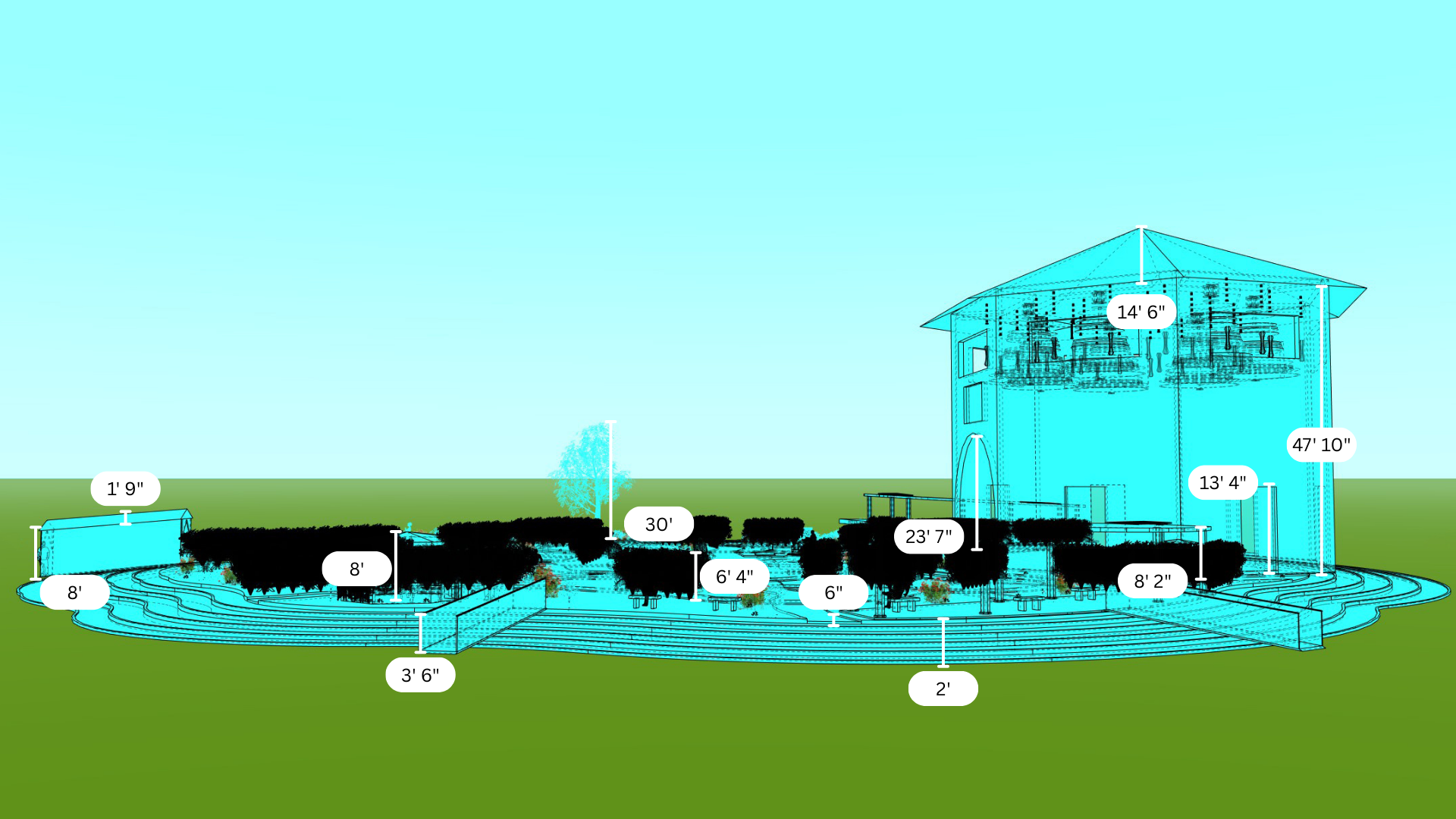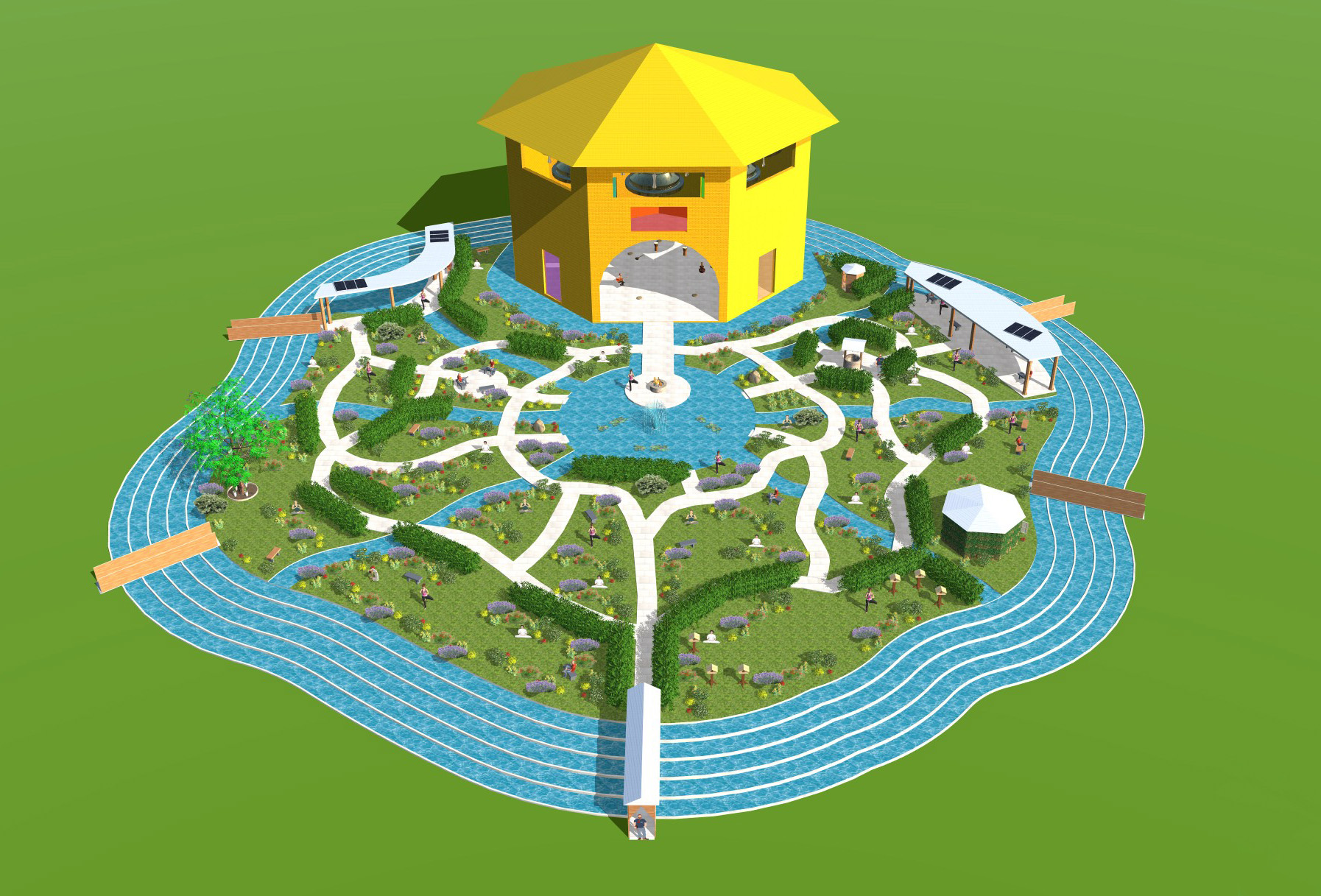The Garden of Enlightenment Sacred Space
Experience Design

Project Description
The circle is a common symbol in the Hindu religion. It can represent harmony but also being stuck in the cycle of reincarnation. Liberating yourself from this cycle is the goal of the Hindu religion, they call Moksha, or enlightenment, but to get there you need to first clear your karmic debt. But how do you do that? Yoga? Meditation? Connection to the divine? Connection to humanity? Connection to nature?
The answer is...Yes, but it is up to you to forge your own path.
What if there was one community space that connected all of these ideas and practices? Welcome to the Garden of Enlightenment.
This story took a very simple scavenger hunt and gave it a fun, sarcastic tone to bring some smiles to my team and thank them for all their hard work this year. I designed the ransom note to feel chaotic with handwritten, uneven text, drastic photocopy effects and even distributed them to the team as crumpled wads of paper. I did all this to sell the world I was creating in the story.
I created this as a project for my master's program at the University of Central Florida. The assignment was to create a sacred space that tells the story of a religion without using any iconography or scripture from that religion.
Software Used:
Sketchup // Adobe Illustrator
Date:
September 2025
Entrance
Enter through the namaste tunnel, aligning your 7 chakras as you ascend into a lush garden.
The space is a tranquil retreat for your senses. From the sight of every plant and building, to the smell of flowers cedar and sandalwood, to the sound of bells replicating the chant of “om”, everything you experience is connected to the divine. But how do you use the space to clear your karmic debts?
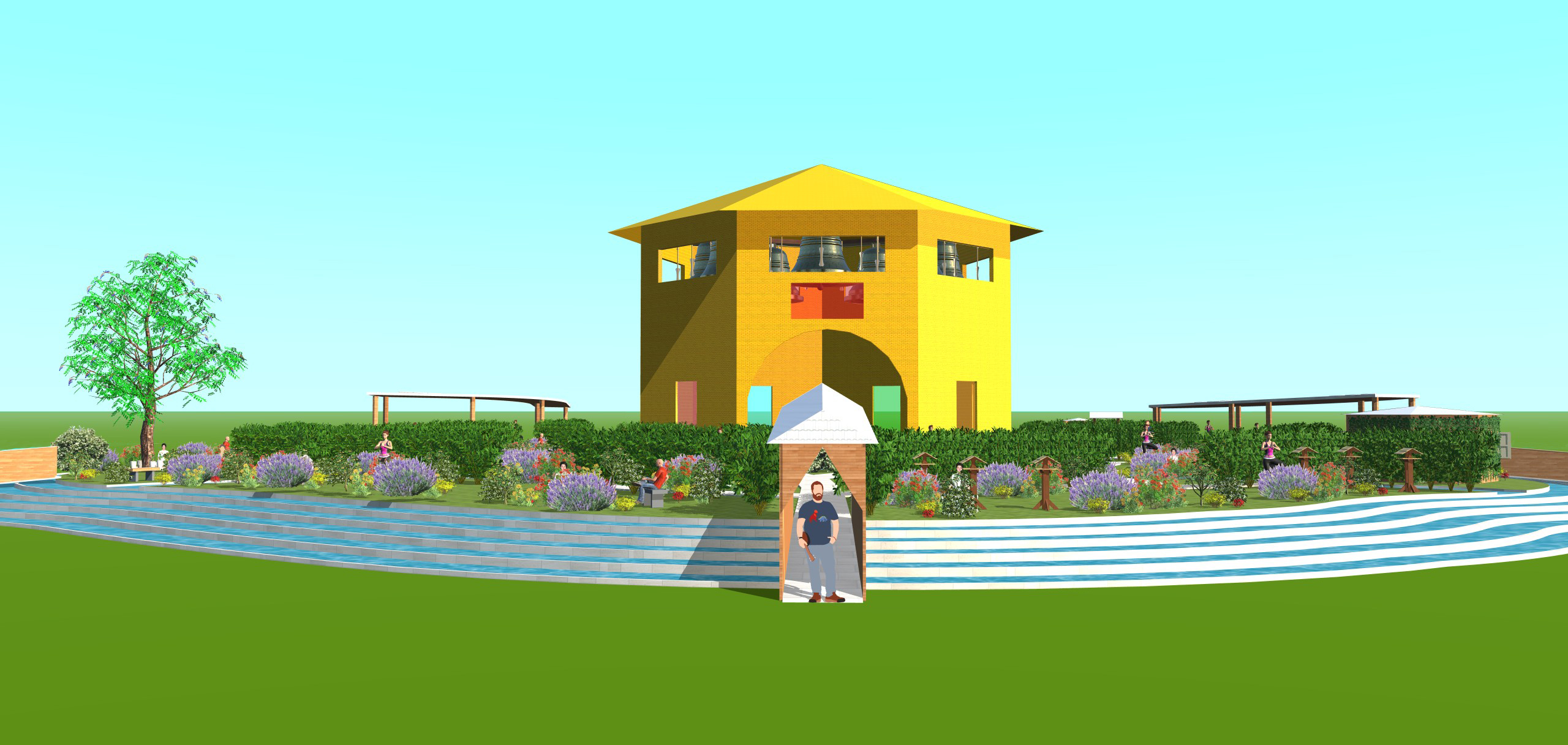

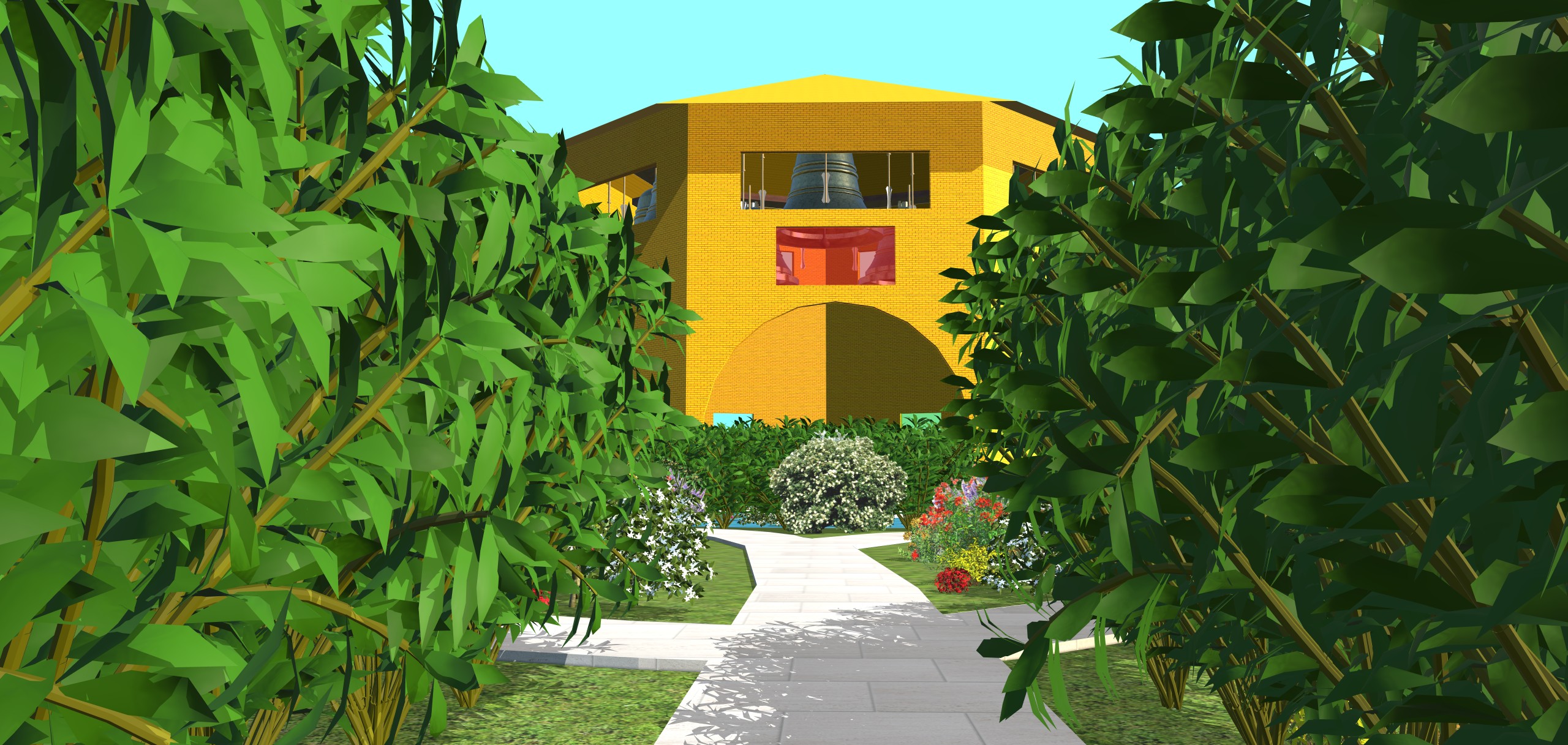

Yoga
There are plenty of secluded areas to align your mind, body and spirit through yoga.
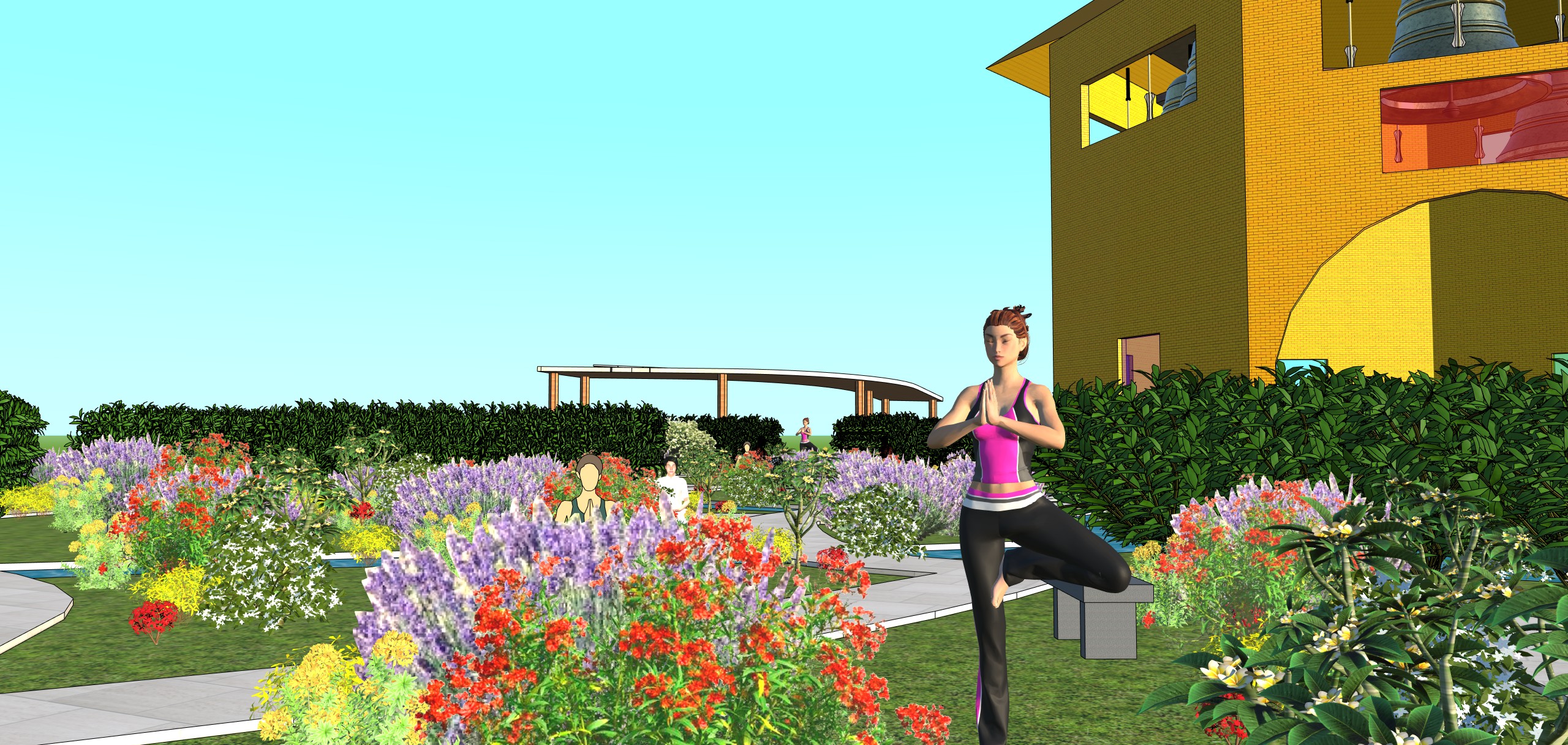

Debt to God
You can connect to the divine in your own personal way, whether that be through private reflection, meditation or open discussion.
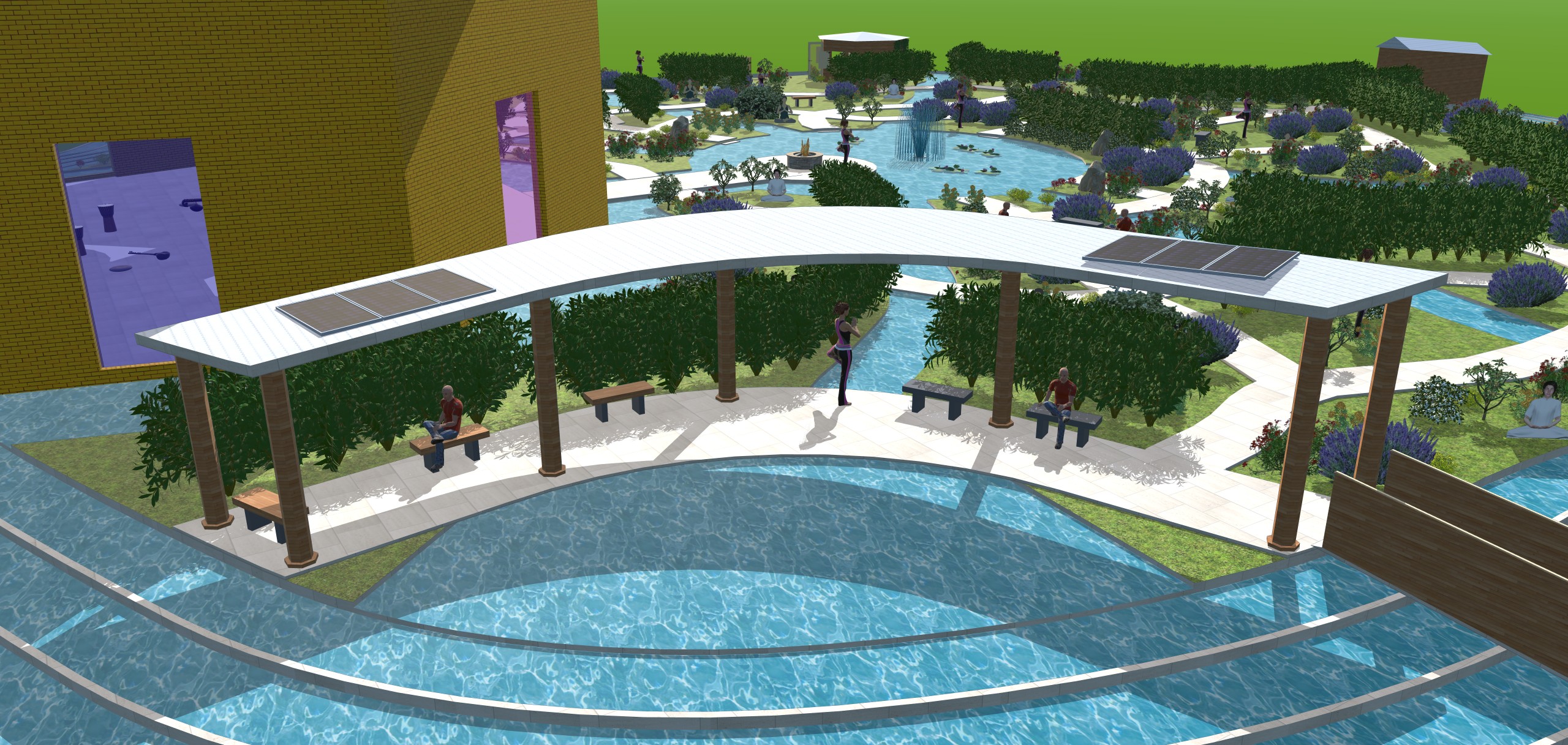

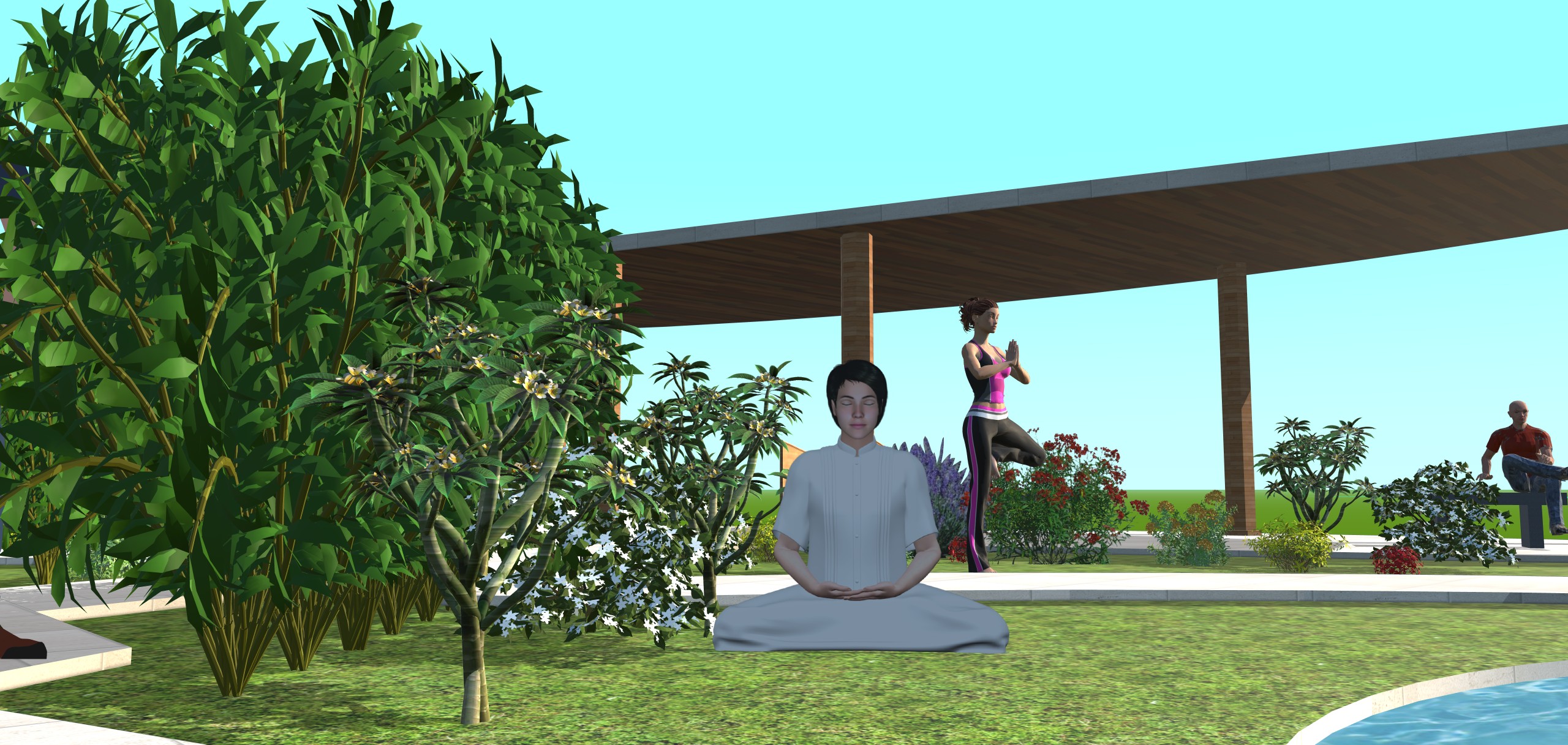

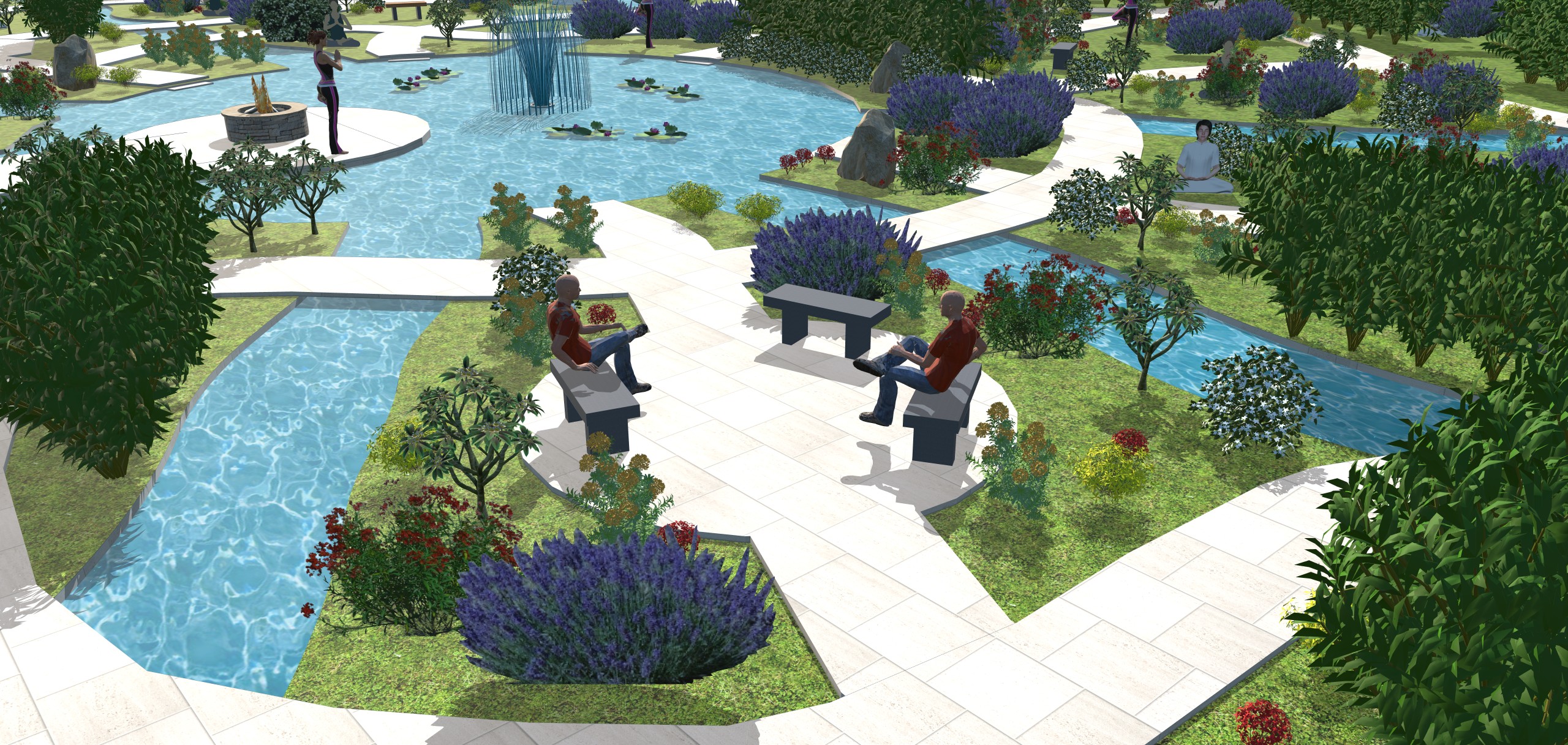

Debt to Sages
You can bring or take sacred texts from all religions at the community library, or read it right in the garden.
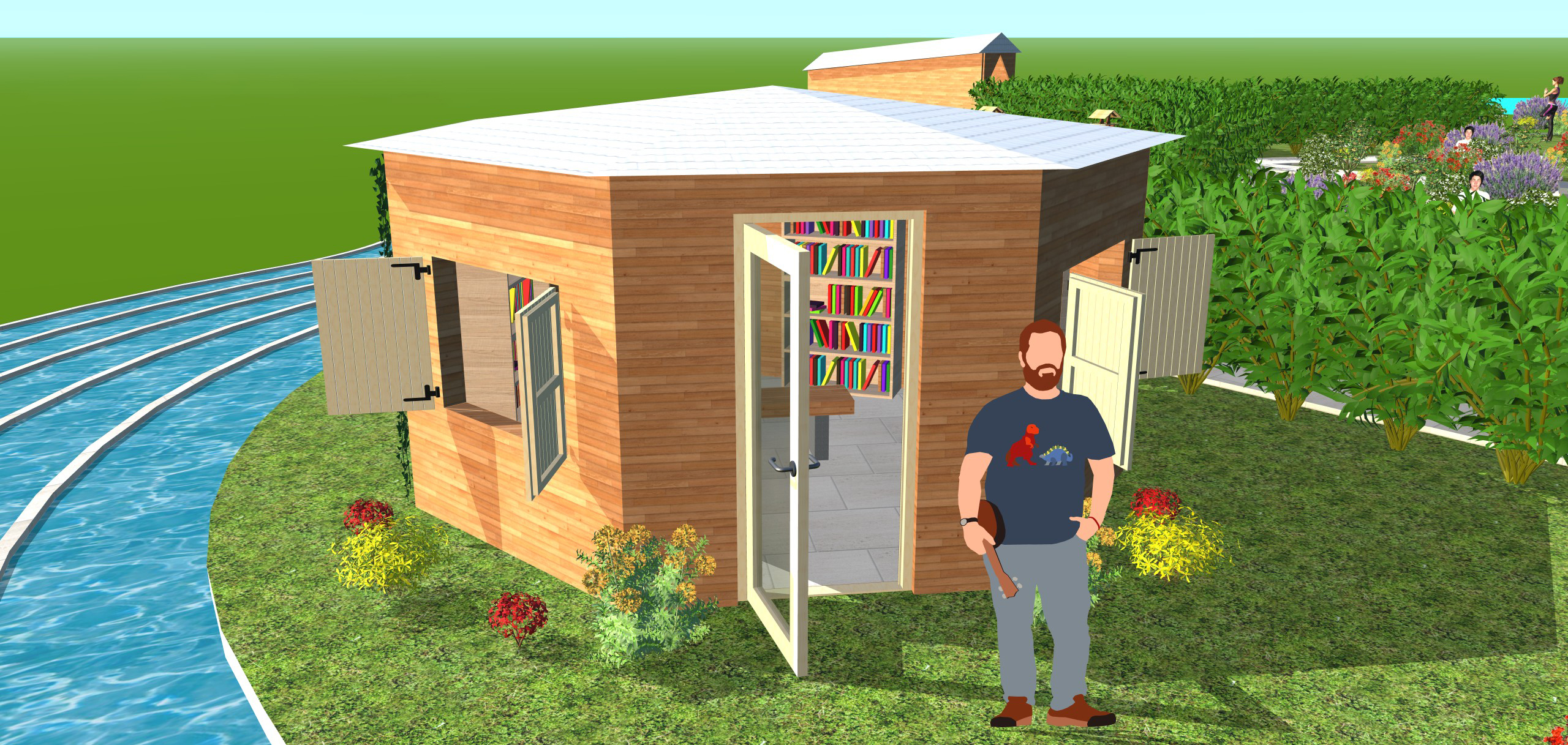

Debt to Ancestors
You can honor your ancestors by leaving an offering at the base of the holy rudraksha tree.
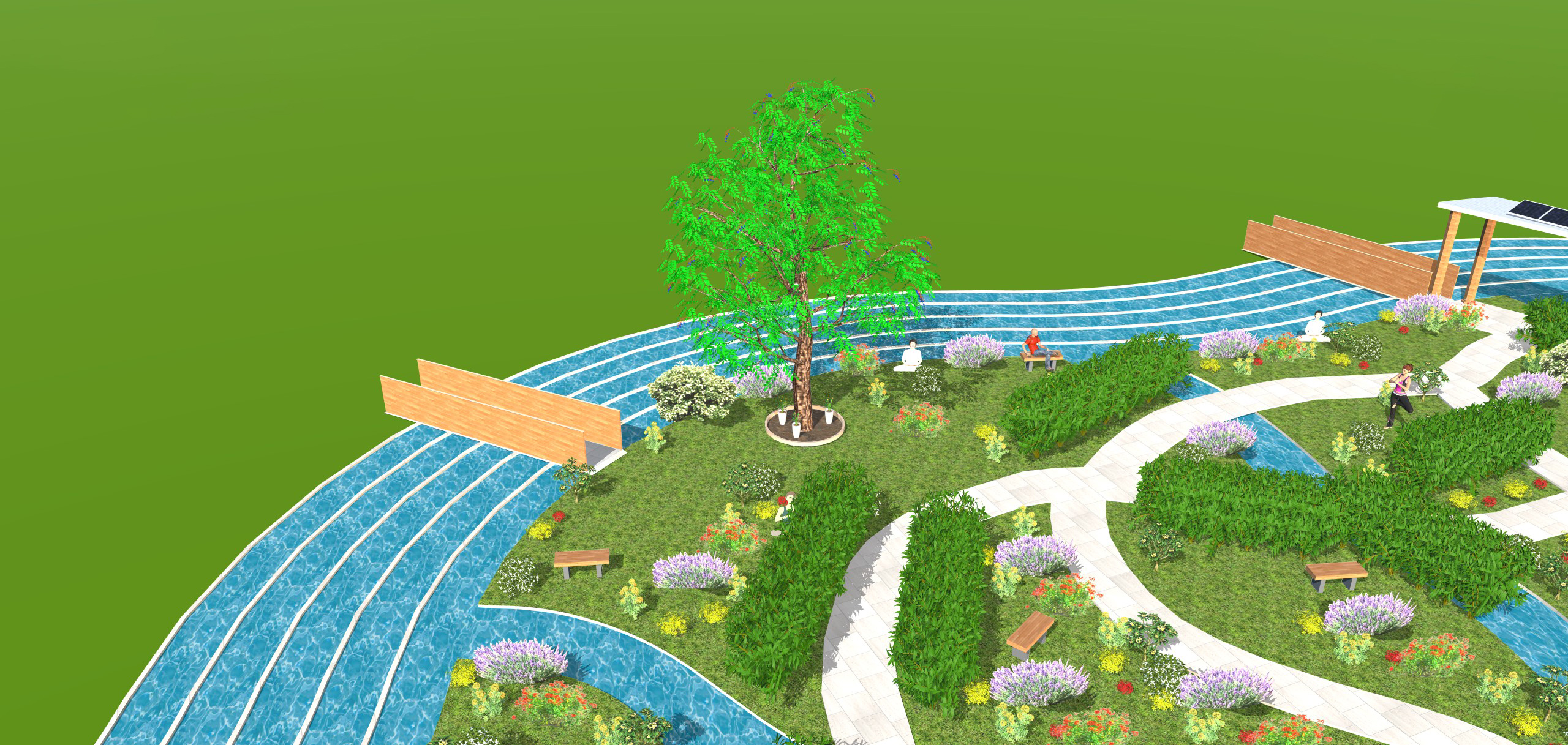

Debt to Humanity
You can help the community by offering a donation that goes back into maintaining this community garden.
Or, barring money, you can clear your debt to both humanity and nature by actively helping to maintain the garden.
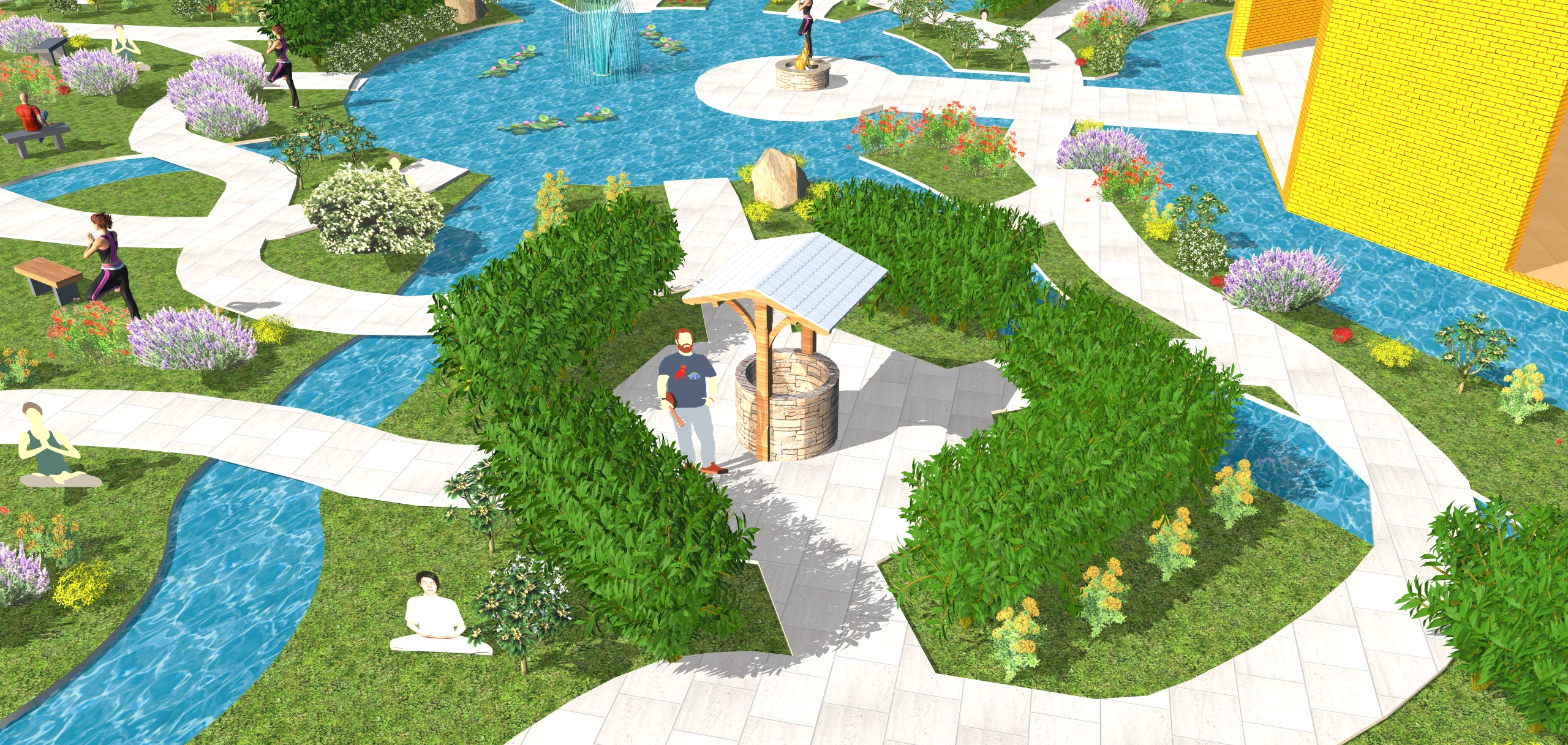

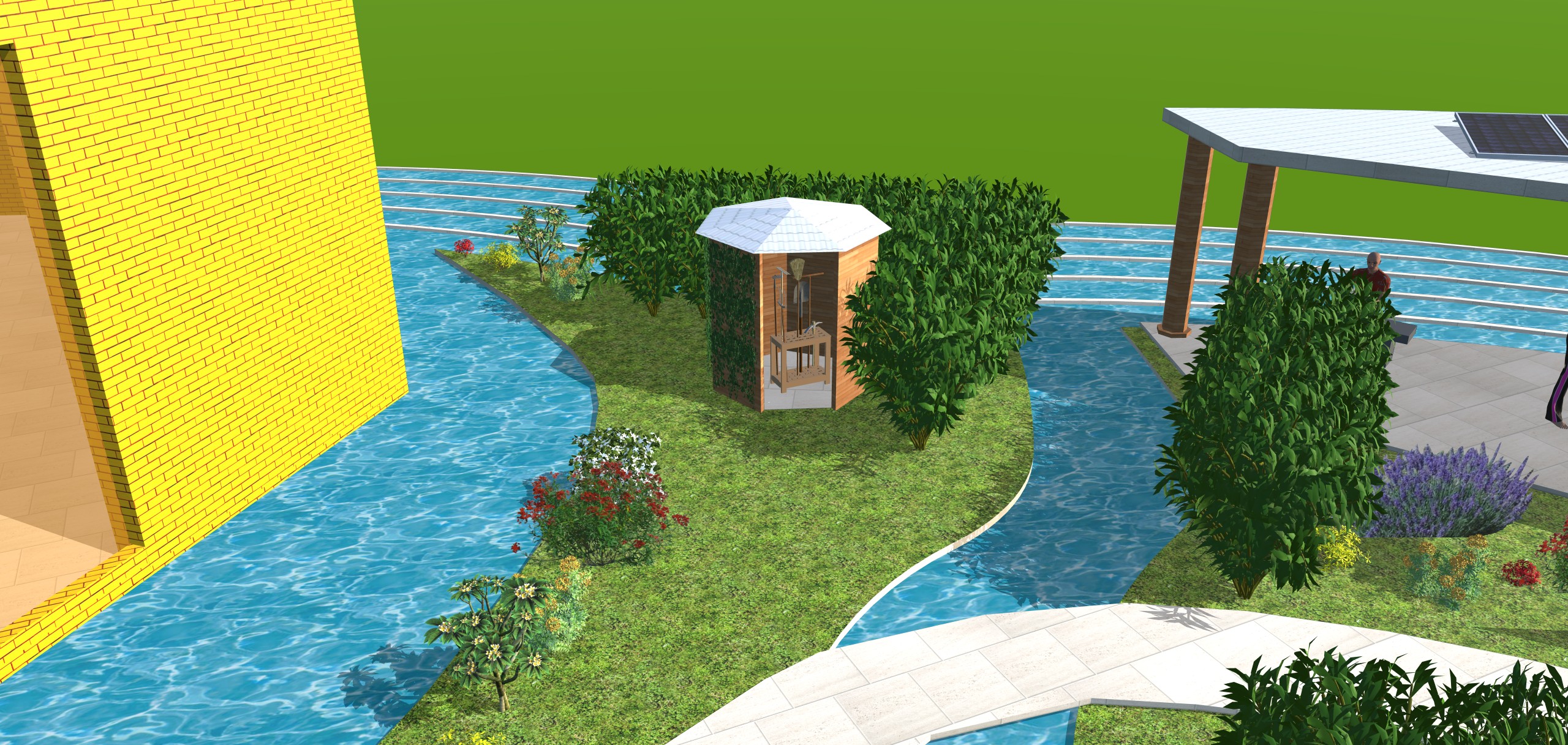

Debt to Nature
You can connect to nature by listening to local birds nesting here or just admiring the flowers.
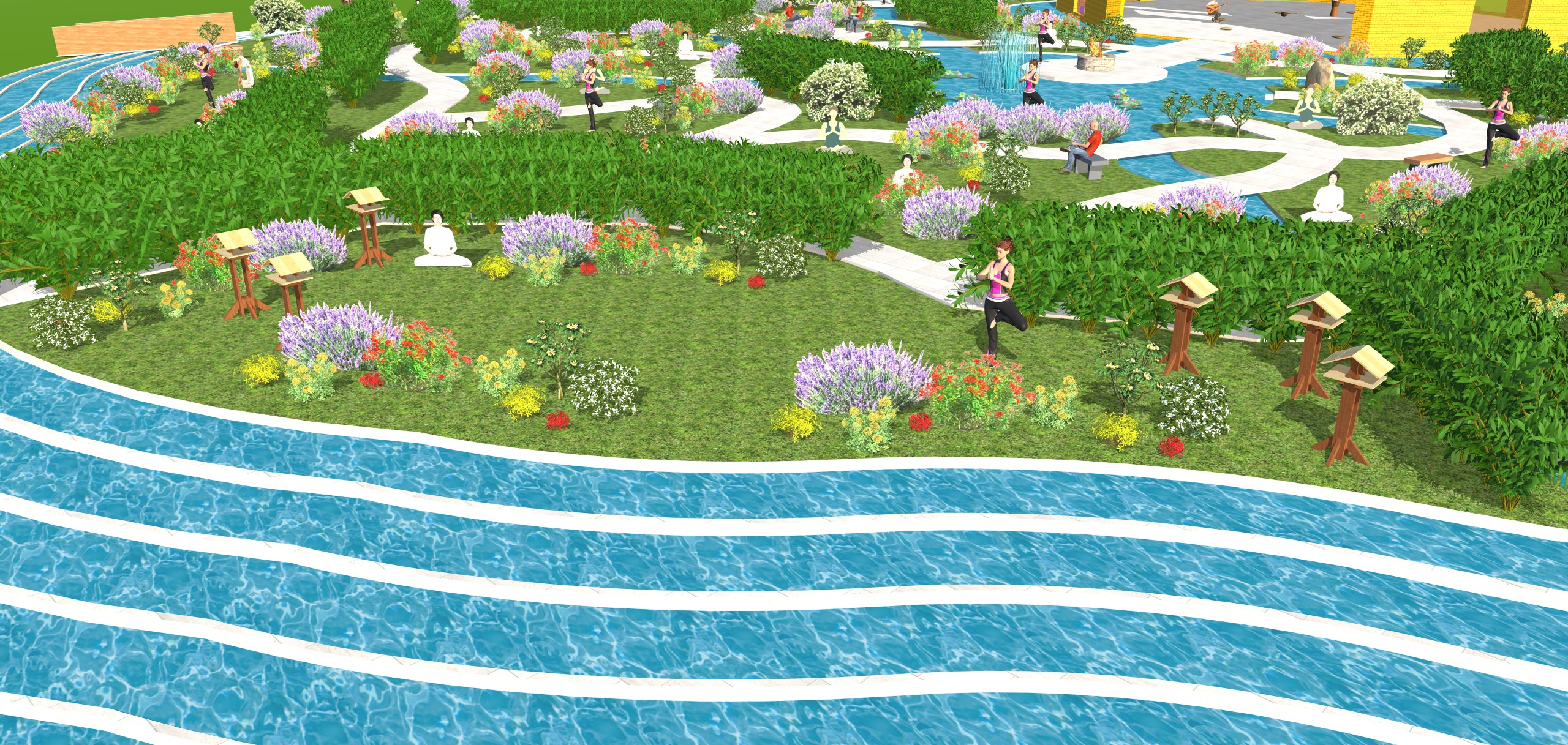

Cleanse Your Spirit
You can cleanse your spirit by wading in the 6-inch filtered central lagoon, mimicking ritual bathing in Ganges river. Or contemplate the circle of life as you gaze into the sandalwood fire.
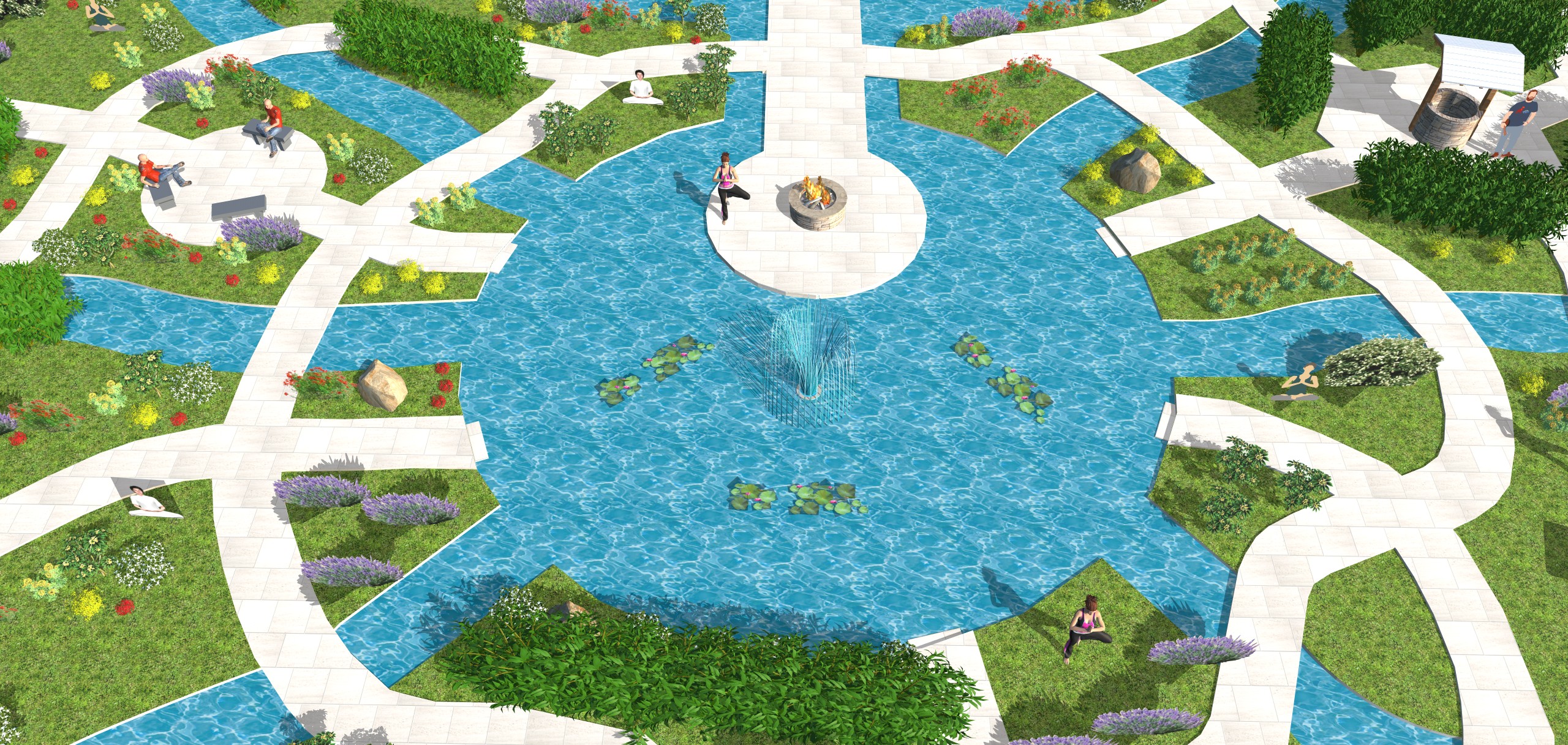

Moksha Tower
Whenever your personal path leads you to enlightenment, you will find yourself at the golden Moksha tower, which is an open space for the community to come together in enlightenment.
The 7 colored windows on each side provide a different ambiance based on the sun’s position.
The blank canvas inside can accommodate any ceremony, such as celebrating through music in concert with the 7 om bells above, that chime as wind blows through the rafters.
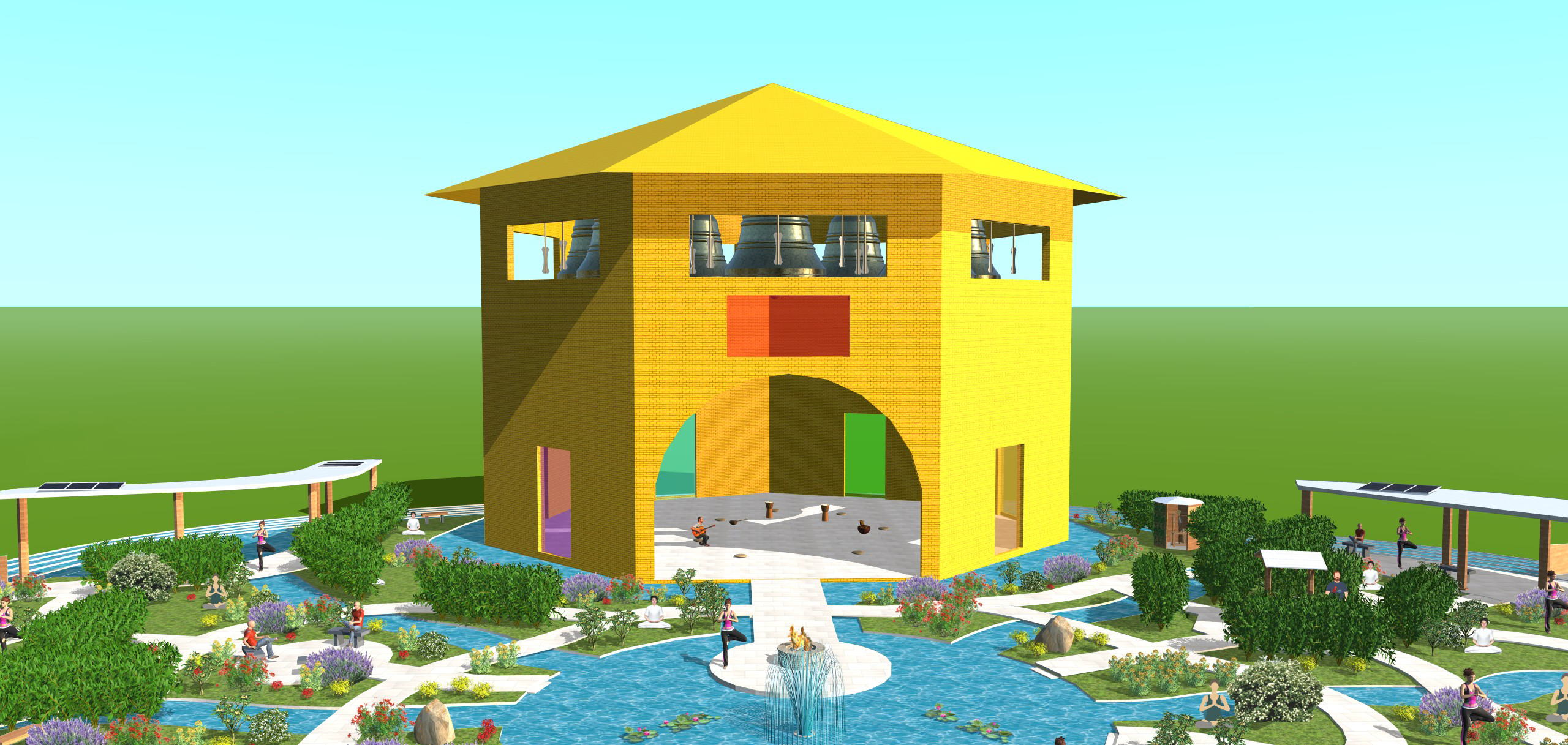

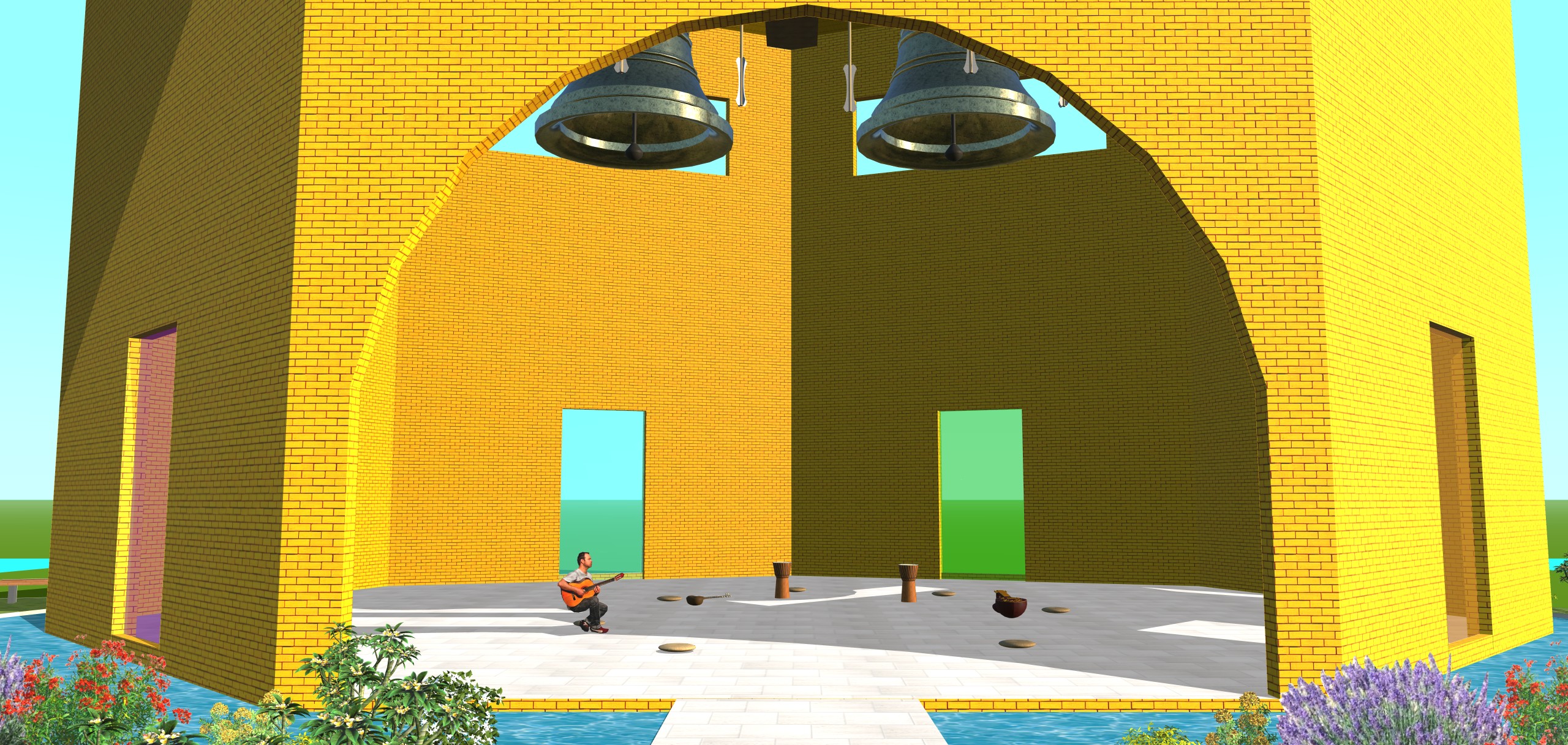

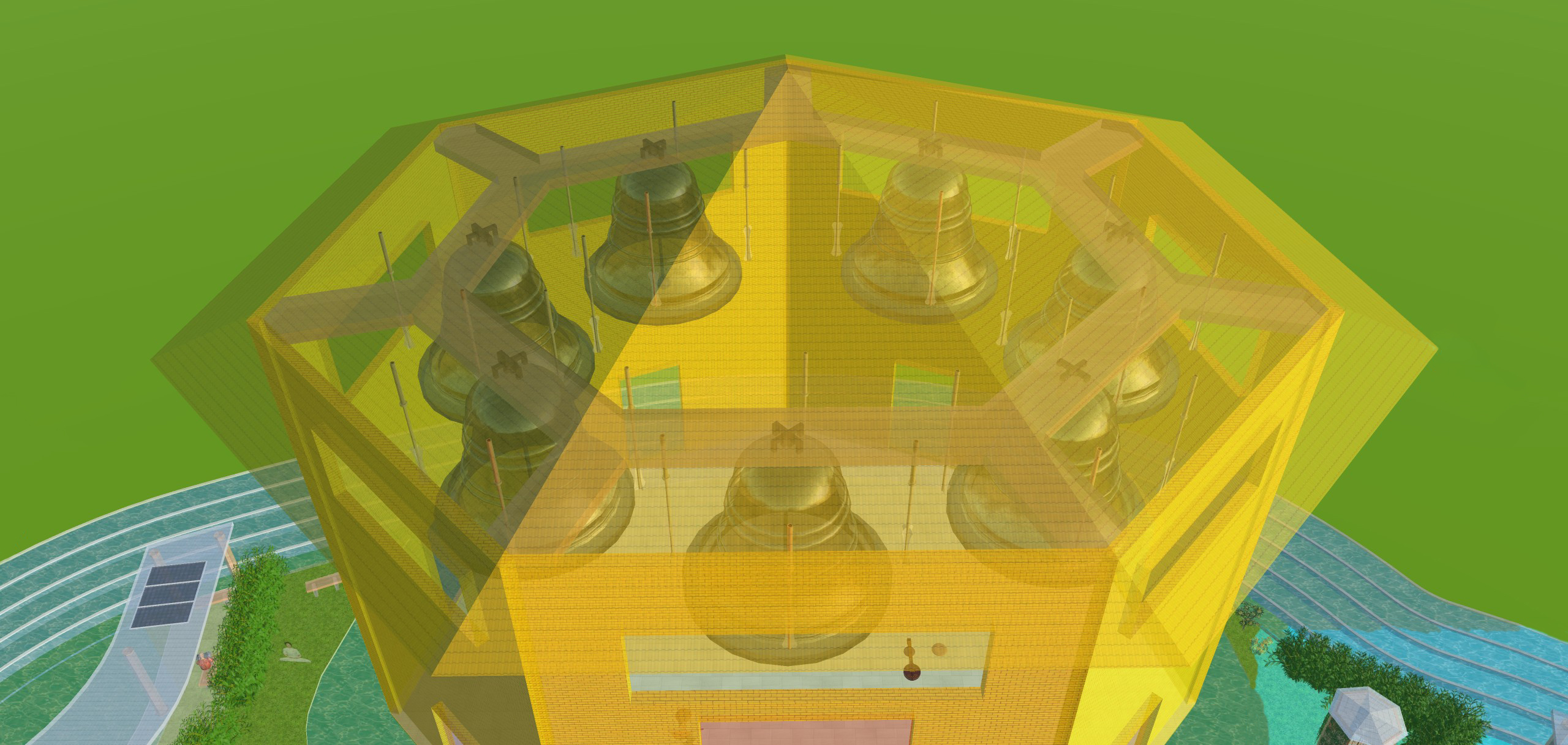

Keepsake
There are multiple exits to the space, but there is no gift shop. Hinduism is all about shedding material desires. If guests do want a keepsake from the experience, they can take a fallen seed from below the rudraksha tree that can be used in rituals or just provide a reminder of their experience.
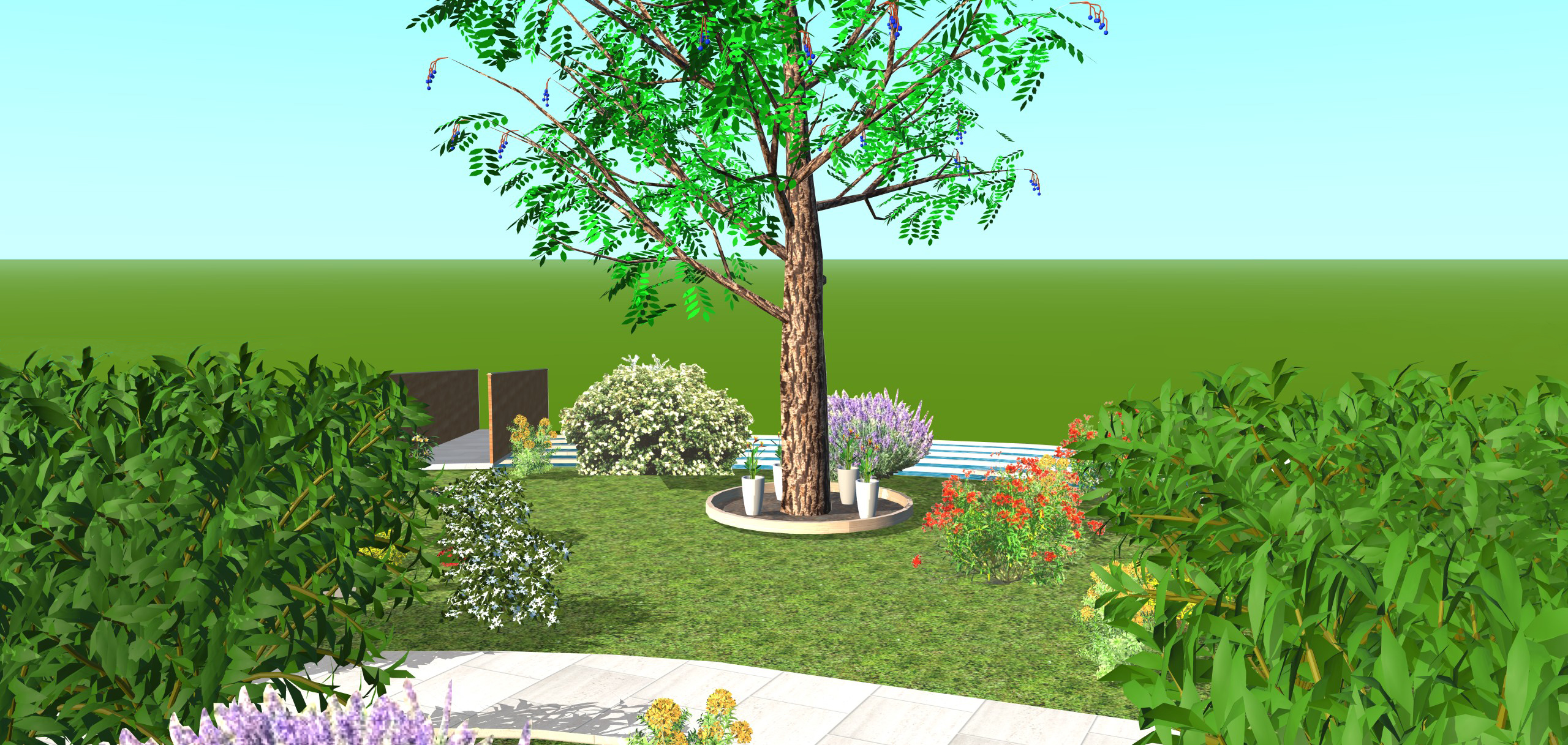

Logistics
Now that we have toured the space, let’s talk about logistics. This would be built in an open area with plenty of sunlight in Florida, which has a similar climate to southern India, so the exotic plants can thrive.
The space would aim to be as energy-efficient as possible. The site would require electricity for the fountain, but solar panels on the covered areas would supplement that.
The space would require 2-3 full-time staff for maintenance, which could be supplemented by donations.
In closing, this garden could bring both religious and secular communities together by allowing each individual that enters to leave a little more enlightened.
